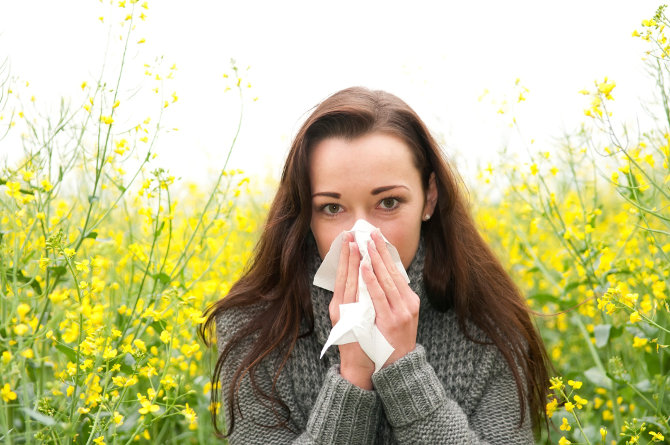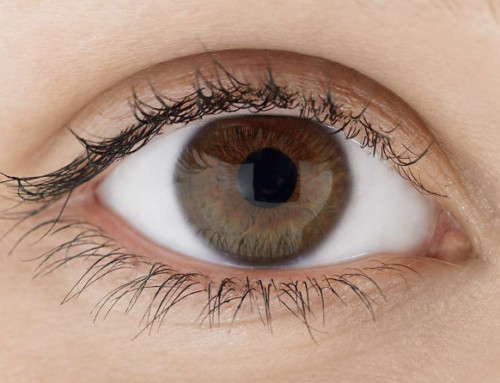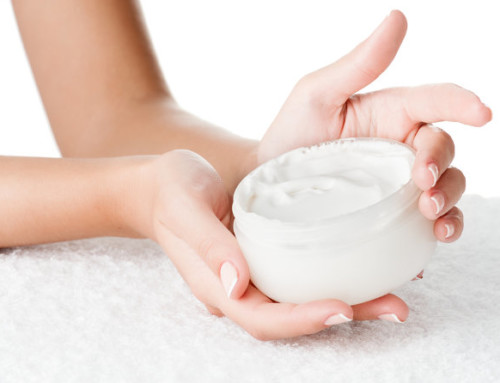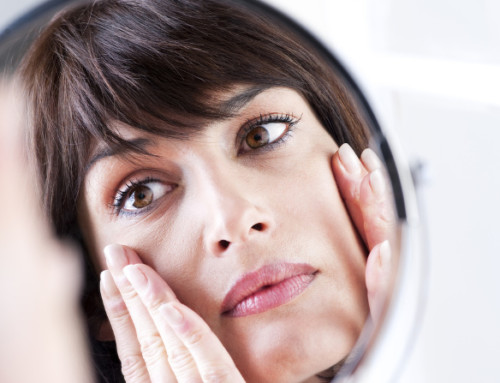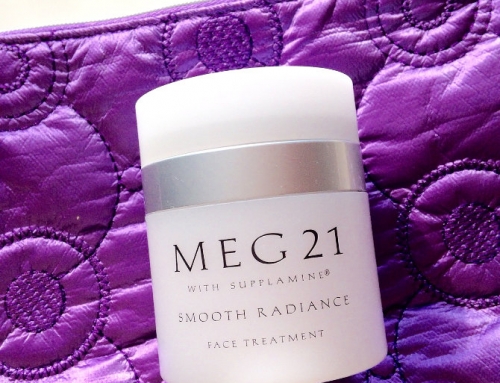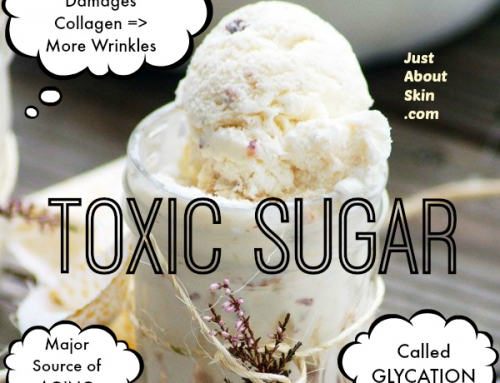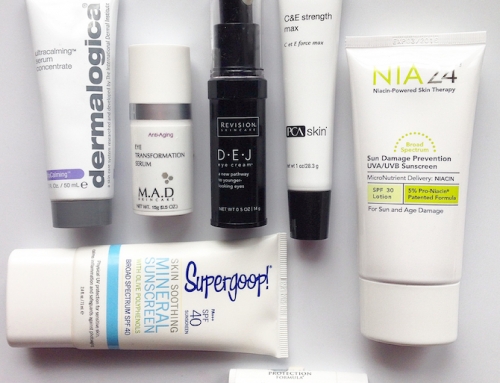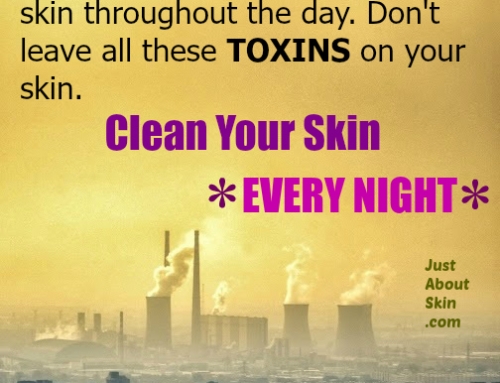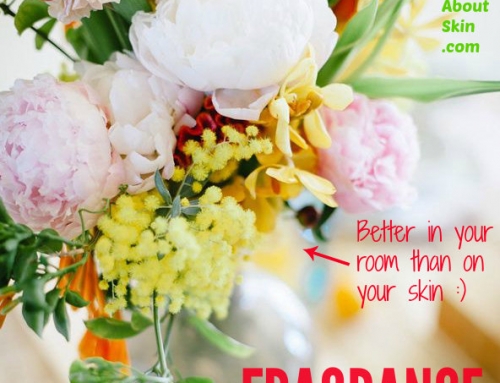It’s that dreaded time of year for me. HAY FEVER. For about 3 weeks every year, I am positively miserable. Non-stop sneezing and itchy eyes (even with meds).
My nose turns red and the skin around my nose becomes dry and irritated (from blowing it so much). My eyes become swollen and easily irritated. Even stray strands of hair tickle my skin.
In other words, my skin becomes very SENSITIZED.
If you have seasonal allergies, then your skin could be more sensitive too. If so, it’s a good idea to modify your skin care routine.
7 Tips for Hay Fever Skin Problems
1. Back off on the Retinol, Vitamin C, and Peptides
These are very active ingredients, meaning they’re stimulating activity within the skin. When your skin is sensitized, these ingredients may be too strong and cause irritation. So stop using those anti-aging serums and creams containing those ingredients until your allergies go away.
2. Buy a Sensitive Skin moisturizer and use it instead of your normal moisturizer
A moisturizer meant for sensitive skin should contain anti-inflammatory and anti-irritant ingredients to soothe and calm skin.
3. Use a thick, balm-like moisturizer around your nose if it’s dry and chafed
The skin around the nostrils is thin and delicate. (That’s why blood capillaries are more visible there.) If you are blowing your nose a lot, it will naturally get more red and irritated.
You’ll want to apply something thick and emollient to relieve the dryness and soothe that area. A moisturizer with barrier repair ingredients is what you need. Try to find a cream with balm-like consistency, which is almost like a sticky paste.
A balm has less water and therefore will evaporate more slowly than a regular moisturizer. It will therefore give you longer-lasting relief.
Apply it around the crease of the nostrils and below the nostrils. Not on the tip (this is where most people have clogged pores).
If you’re concerned about clogging your pores in the nose area, this is not the time to worry about it. It’s more important to heal and protect that chafed skin. You can exfoliate and get extractions done on that area later.
4. Don’t use an eye cream with Retinol, Vitamin C, or Peptides
For the same reason as #1. Use a basic eye cream or moisturizer instead.
Avoid using creams that contain many botanical ingredients, which can be sensitizing.
5. When you apply eye cream (or a balm), press it in rather than rubbing it in
Rubbing may cause more irritation. Pressing is better for the skin around the eyes anyway. The skin there is delicate and easily wrinkles from repeated movement.
6. Don’t exfoliate
When your skin is sensitized, exfoliating can be too aggressive on skin.
7. Remember to wear sunscreen
With sensitized skin, you need extra protection from UV rays and pollution. The sunscreen will protect your barrier function.
Less is Better
The less you do to your skin, the better. Keep your routine simple and be minimal with your product usage.

